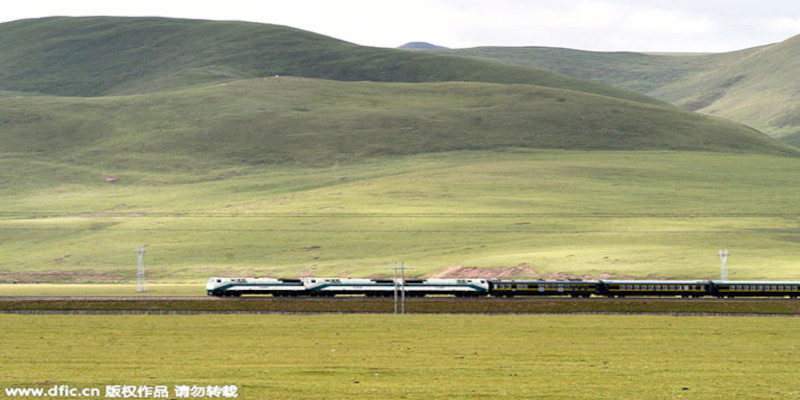Dharamshala, 7th June: On the Chinese Communist Party’s 100th birthday this month, China will ‘give’ Tibet a 435-kilometer railway line advertised as the region’s ‘fastest.’ According to The Economist, the 37-billion-yuan ($5.7-billion) track will run from Lhasa, Tibet’s capital, to Nyingchi, and will begin operations on June 30. The 435-kilometer line is Tibet’s ‘first electrified railway line,’ and it forms a significant portion of China’s second rail link with Tibet, dubbed ‘The Lhasa-Nyingchi railway stretch.’ The full Lhasa-Nyingchi railway length, which will connect Lhasa with Sichuan’s capital Chengdu, is planned to be finished in 2030 as part of China’s “project of the century.”
The line will go at a maximum speed of 160 kilometers per hour, covering the entire route in under 12 hours as opposed to the 36 hours it would take to travel by car. Notably, China’s recent 1 trillion yuan ‘development drive’ in Tibet to boost infrastructure construction will boost China’s border security near the Tibet border amid the LAC conflict. The track would connect southwest Sichuan province to Linzhi in Tibet, which is near the Arunachal Pradesh border. Chinese President Xi Jinping has claimed that the rail line will play a “vital role in protecting the stability in the nation’s border areas.”
Meanwhile, the Central Tibetan Administration has expressed alarm over China’s systematic damage to the environment as it continues to make huge inroads into Tibet through large-scale construction projects. The panel discussed the persecution Tibetans face in terms of human rights and the environment during a three-day virtual event on the ’17-point Agreement & 70 Years of Oppression in Tibet’ organized by the Tibet Bureau Geneva on May 22.
Tibet has claimed that “the last 70 years under the Chinese Communist Party (CCP) have been nothing but persecution and disaster,” according to news agency ANI. While Tibet as a region remains a developmental priority for the Chinese government, the bureau’s official disclosed that those initiatives have neither “liberated” nor “prospered” Tibetans.
Image Courtesy: Chinadaily

